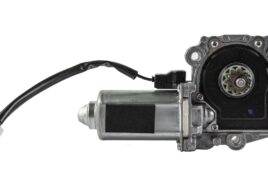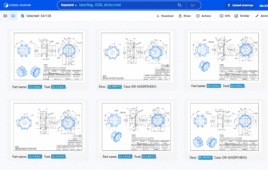Successfully matching resins for manufacturing injection molded and machined medical devices and components means reviewing the types of materials available and reviewing the product usage. Usage considerations include temperature, chemical contact and resistance, applied stresses during use, transparency, opacity, aesthetics, wear resistance, lubricity and sterilization.
Typical resins used for medical applications and components include PEEK, Ultem, Makrolon Polycarbonate and Udel Polysulfone.
PEEK for Injection Molding and Machining
PEEK (Polyether etherketone) has excellent mechanical and chemical resistance. PEEK has biocompatibility which means it is accepted by the body and doesn’t break down over time, so it can be used over a person’s lifetime. The material is also x-ray compatible as well as having advantages over metals in CT and MRI technology.
Because PEEK’s stiffness is similar to that of bone, it can be tailored using structural additives to match the stiffness of both cortical and cancellous bone density without potential issues such as stress shielding and bone resorption.
Applications include spinal implants, bone screws and pins, spinal cages bone fixation screws, cardiac and neurological leads and dental implants.
 PEEK material provides:
PEEK material provides:
- Stability at high temperatures.
- Biocompatibility
- Good for high-load, high temperature applications
- Chemical Resistant
- Readily sterilized by steam, gamma, EtO and E-beam
- X-ray Compatible
- Extremely inert and very hard
- Offers strength and stiffness
- Used as a replacement for metals such as titanium or stainless steel
PEEK components can be manufactured by injection molding, CNC and Swiss screw machining methods. Whichever manufacturing method is used – it is important to make sure the company manufacturing your components is extremely experienced and knowledgeable about the material. Very high temperatures are required to process PEEK.
Medical Grade Ultem
Medical Grade Ultem is the material used for durable healthcare applications where a range of sterilization methods are used.
This special resin delivers:
- Provides chemical resistance to lipids and disinfectants
- It has high heat resistance that sustains physical properties at elevated temperatures
- Exceptional resistance to environmental forces
- Inherent flame resistance with low smoke evolution
- High mechanical strength
- High dielectric strength and stability, which is an excellent electrical insulator
- Easily machined
- Available in opaque and transparent colors
- Ultem 1000 is resistant to UV and gamma radiation. It performs especially well in hot air and water environments. It is FDA compliant. It’s standard color is amber.
Ultem 2300 is a 30% glass reinforced grade of Ultem which provides for greater tensile strength and rigidity while at the same time improving the product’s dimensional stability. It’s standard colors are tan and green.
Makrolon Polycarbonate
Makrolon Polycarbonate is lightweight with glass-like transparency and it is impact resistant. It has a high dimensional stability and is easily molded. It has excellent heat resistance with a glass transition temperature. Medical grades can be sterilized using steam, gamma or ethylene oxide methods.
Makrolon Polycarbonate has an unusual combination of strength, rigidity and toughness that helps prevent potentially life-threatening material failures. It provides glasslike clarity, a critical characteristic for clinical and diagnostic settings in which visibility of tissues, blood and other fluids are required.
Medical grades are available that comply with biocompatibility testing standards. Used in renal dialysis products, cardiac surgery products, surgical instruments used in minimally invasive procedures and IV connection components.
Specialized polycarbonate grades are specifically designed to meet certain processing or end use conditions for the medical device market. Like Radiation grades for high-energy irradiation. High Temperature grades for dental or surgical device applications that must be autoclaved in the clinic prior to use. Polycarbonate blends to provide polymers with enhanced properties like polycarbonate /ABS for strength and rigidity of polycarbonate with the easy flow and toughness of ABS; uses include large, rigid equipment housings and other structural components. Polycarbonate/polyester blends adds chemical resistance for equipment like portable diagnostic equipment, portable respiratory therapy devices, in-home dialysis equipment and portable defibrillators. Lipid-resistant grades for the IV component market. Enhanced productivity grades for cleanroom molding for easy release of molded components from tooling.
Udel Polysulfone
Udel Polysulfone engineering resins combine high strength with long-term resistance to repeated steam sterilization. These polymers have proven successful as alternatives to stainless steel and glass. Medical grade Polysulfone are biologically inert, display unique long-life under sterilization procedures, and can be transparent or opaque in any color. They are resistant to most common hospital chemicals, highly resistant to oxidation and hydrolysis, mineral acids, alkali and salt solutions. Good for surgical instruments, dental applications, electronics, hospital goods, medical devices, and medical/healthcare applications.
Crescent Industries
www.crescentind.com
Filed Under: Molding • injection molding components, Medical-device manufacture, MORE INDUSTRIES





Tell Us What You Think!